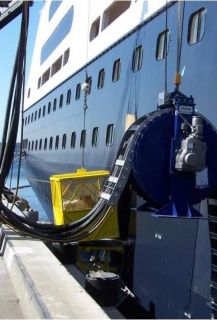Why do it?

Ships at berth generate air pollutant and noise emissions that impact the health of the ship’s crew and of people working and living in the neighbourhood of the terminal. The impact of ships at berth can be significant, depending on the location of the terminal. Scientific research has shown that long-term exposure to particulate matter (PM) and nitrogen oxides (NOx) have a significant effect on human health. Governments have therefore set air quality standards for air pollutants. Many cities have problems meeting air quality standards.
Health effects
WHO has conducted a wealth of research on the adverse impacts of air pollutants on human health. The most important pollutants from diesel engines are particulates and nitrogen oxides. Particulates penetrate deep into the sensitive parts of the lungs and can cause heart conditions and respiratory diseases that may result in premature mortality.
The SO2 emissions occurring in ports derive overwhelmingly from ship’s engines, because the sulphur levels of fuels used by road vehicles are much lower. SO2 is a precursor of PM. Epidemiological studies indicate that NOx exposure can lead to decreased lung function and asthma. NOx has been found to be a good indicator for all the pollutants related to fossil fuel use. For this reason NOx emissions and exposure are now generally regulated by governments.